Bloating
Struggling with bloating? Here’s what you need to know to find relief.
ALL TEST ARE ACCREDITED & REGULATED BY



What is bloating?
When you’re bloated, your stomach or abdomen can feel full and uncomfortable, or even painful.
This bloating happens when your gastrointestinal tract contains too much gas or air. Bloating can be mild, or more severe, and may present as:
– A visibly distended or swollen abdomen
– Feeling very full and uncomfortable
– Feeling of tightness in the abdomen
– Excess gas – belching and/or flatulence
– Rumbling or gurgling
There are several causes of bloating, so it’s important to diagnose the cause of your bloating and find out why it’s happening to you.

Why does bloating happen?
Prolonged periods of bloating could indicate an underlying health problem, if so you should see your GP.
Possible causes can include:
Irritable bowel syndrome (IBS diagnosis)
Ulcerative colitis, a form of inflammatory bowel disease (IBD), where the inner lining of the large bowel is inflamed and develops ulcers
Crohn’s disease, the other form of IBD, where some parts of your colon are inflamed
Too much bacteria in your small intestine (called small intestinal bacterial overgrowth, or SIBO)
Gastroesophageal reflux disease
Food intolerances, especially lactose or fructose intolerance
Producing too much gas (dysbiosis and fermentation)
Weight gain
Stress or anxiety
Delays in your food and drink moving on from your stomach (called gastroparesis)
Eating too quickly, so that you swallow too much air (called aerophagia)

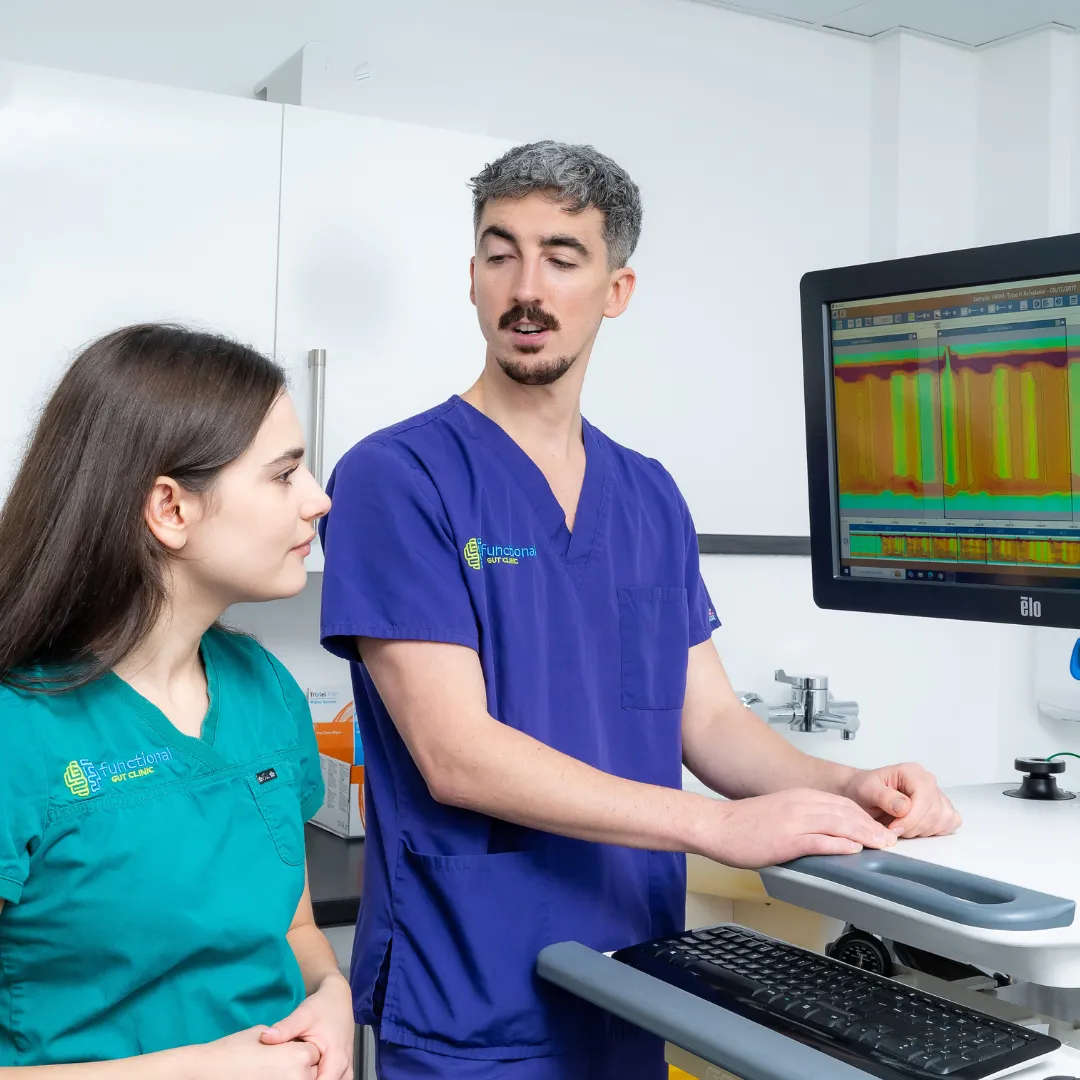
Diagnosing bloating
Feeling bloated is no fun, but once you know what’s going on you can start to manage your symptoms and the underlying causes.
Testing options:
At the Functional Gut Clinic, we can run the following tests to diagnose the causes of bloating:
Gastric emptying test– which measures how quickly food leaves your stomach
Carbohydrate malabsorption breath test– which finds out if you have certain food intolerances (lactose or fructose)
Small intestinal bacterial overgrowth (SIBO) breath test– which finds out if you have an overgrowth of bacteria in your small intestine (called SIBO)
Oesophageal manometry– which measures the function of your oesophagus (food pipe)
24-hour pH impedance monitoring– which looks at whether you have any reflux
Colonic transit study-a non-invasive test which looks at how long it takes for faeces to pass through your bowl
Learn more about bloating
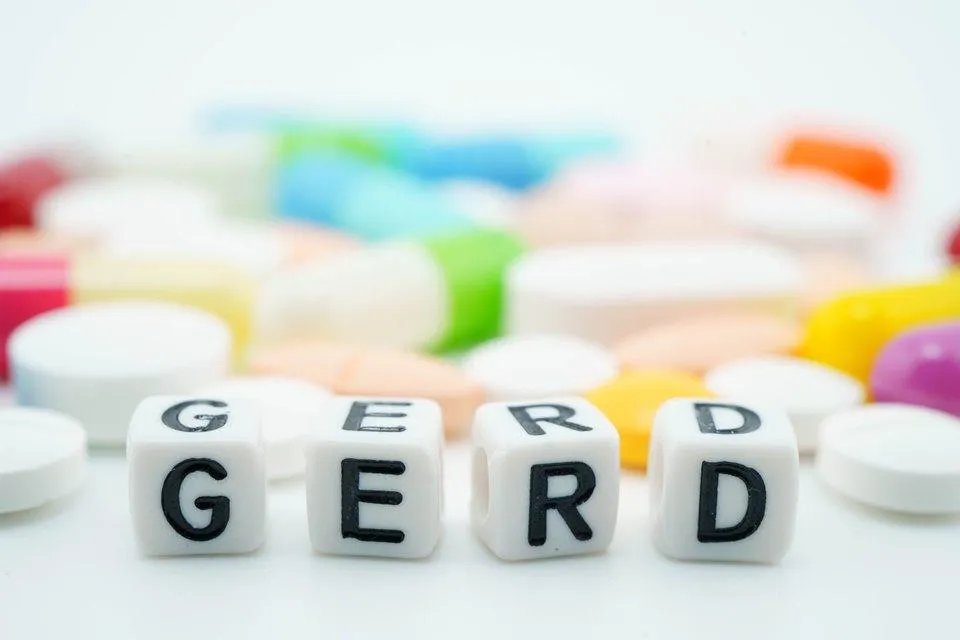
Symptoms & Causes of GER & GERD in Children
Gastroesophageal reflux (GER) and gastroesophageal reflux disease (GERD) are often thought of as conditions only affecting adults. They occur when acid moves backwards from the stomach into the oesophagus.
However, as any new parent will know, young babies often struggle with reflux during their first few months. Usually, this problem resolves without any intervention. GER and GERD can persist in older children and teens – in such cases, the symptoms of GERD in children are similar to adults.
Symptoms of GER and GERD in Children
The symptoms of GER and GERD in children differ depending on the age of the child. Broadly speaking, we can separate them into infants and young children or older children and teens. The primary difference is the communication barrier. The younger the child, the less able they are to express discomfort or describe their symptoms.
Infants and Young Children
Fundamentally, the underlying condition remains the same regardless of the child. GER is relatively common in this age group, peaking at around 4 months old and improving until 12-18 months.
Common symptoms include:
Frequent spitting up or vomiting (especially after feeds)
Fussiness during or after feeding
Hiccups
Coughing or gagging during feeding
Arching of the back (especially during or after feeding)
Refusing to feed or difficulty feeding
Mild sleep disturbances
Normal weight gain despite symptoms
If the reflux is severe (i.e., GERD), then a child may experience poor weight gain (or even weight loss), refusal to eat, blood in vomit or stool, disrupted sleep, and chronic coughing, wheezing, or other breathing issues. Children who are starting to vocalise and eat solids may have a hoarse voice or difficulty swallowing.
Older Children and Teens
There is no cutoff between the symptoms above and those listed below. Indeed, there’s significant overlap between the symptoms. What differs is the ability of the child to articulate their problems and manage their response to them.
The symptoms of GERD in older children gradually appear more similar to those of adults. Your child might complain about:
Heartburn or chest pain
Sour-tasting regurgitation
Chronic cough or throat clearing
Sore throat or hoarseness
Nausea after eating
Trouble swallowing
Bad breath
Bloating or frequent burping
Poor appetite or weight loss
Sleep can also be disrupted, especially if they’re eating an hour or so before bed. However, it’s unlikely to cause the same level of sleep disruption as in infants. If the GERD persists, asthma-like symptoms or worsening asthma might become a problem.
When to Seek Medical Attention
For new parents, it’s sensible to speak to a doctor if their child is experiencing either GER or GERD. It’s smart to get them checked out early. More experienced parents will know the normal signs of GER.
If your child experiences any more severe symptoms, seek immediate medical attention. These include:
Difficulty breathing
Difficulty swallowing
Refusing to eat, leading to weight loss or poor growth
Blood in either the stool or vomit
Persistent dehydration
Excessive vomiting (especially if it's projectile or green or yellow, i.e., bile)
What Causes GER and GERD in Children?
Perhaps the biggest difference between GER and GERD in children and adults is the underlying cause. In young infants, GER occurs due to the short length of the oesophagus and an immature lower oesophageal sphincter (LOS).
Foods and liquids can easily leave the stomach, entering the oesophagus and mouth. New parents may also overfeed their child – the stomach is only small and becomes full quickly. Finally, infants spend much of their time lying down, which makes it easier for the stomach contents to come back up.
As young children grow up, these problems begin to diminish. By 12-18 months, most symptoms of GER should disappear. If they persist, speak to your doctor.
Older children and teens experience GERD for reasons similar to those of adults. These include:
Being overweight or obese
Smoking or inhaling second-hand smoke
Hiatus hernia (a condition where the upper part of the stomach enters the chest through an opening in the diaphragm)
Previous surgery (e.g., oesophageal atresia correction)
Large meals and a fatty diet
Stress or anxiety
In addition to the causes, conditions like cerebral palsy or cystic fibrosis increase the risk of GERD in children.
Want to learn more about GERD symptoms in children? The Functional Gut Clinic has numerous resources covering everything you need to know about the condition. Our comprehensive guide is the perfect introduction to GERD and acid reflux. We also offer diagnostic testing for people of all ages.
Hear from people we’ve helped, just like you.
"Very professional while welcoming and friendly"
"The manner and demeanour of all staff from reception to people carrying out the test was very professional but welcoming and friendly. Atmosphere is very relaxed and all instructions clear and concise."
London Patient

"Highly recommend this"
"Thanks to Dr Hobson and everyone at the Functional Gut Clinic. The whole team is very kind and generous and they are doing things that are cutting edge and they actually get results."
Manchester Patient

"Highly recommend this"
"After stopping my lansoprazole, every time I had a warm drink, I could feel it burn all the way down to my stomach. Thank you to Sam for making me feel at ease." - Manchester Patient

"My experience could not be better"
"Pleasant and knowledgeable staff that made the experience more enjoyable than it should be!" - London Patient

"Very friendly and knowledgeable"
"An excellent service from beginning to end. I would recommend to anyone who was considering having testing done. Very friendly and knowledgeable!" - Manchester Patient

"Very kind and helpful"
"It was also great to have time to talk to the clinicians – very important when you have problems. Reception staff also very kind and helpful." - Manchester Patient

Are you experiencing any other symptoms
Symptoms are often closely connected. Find out more below.
Reflux
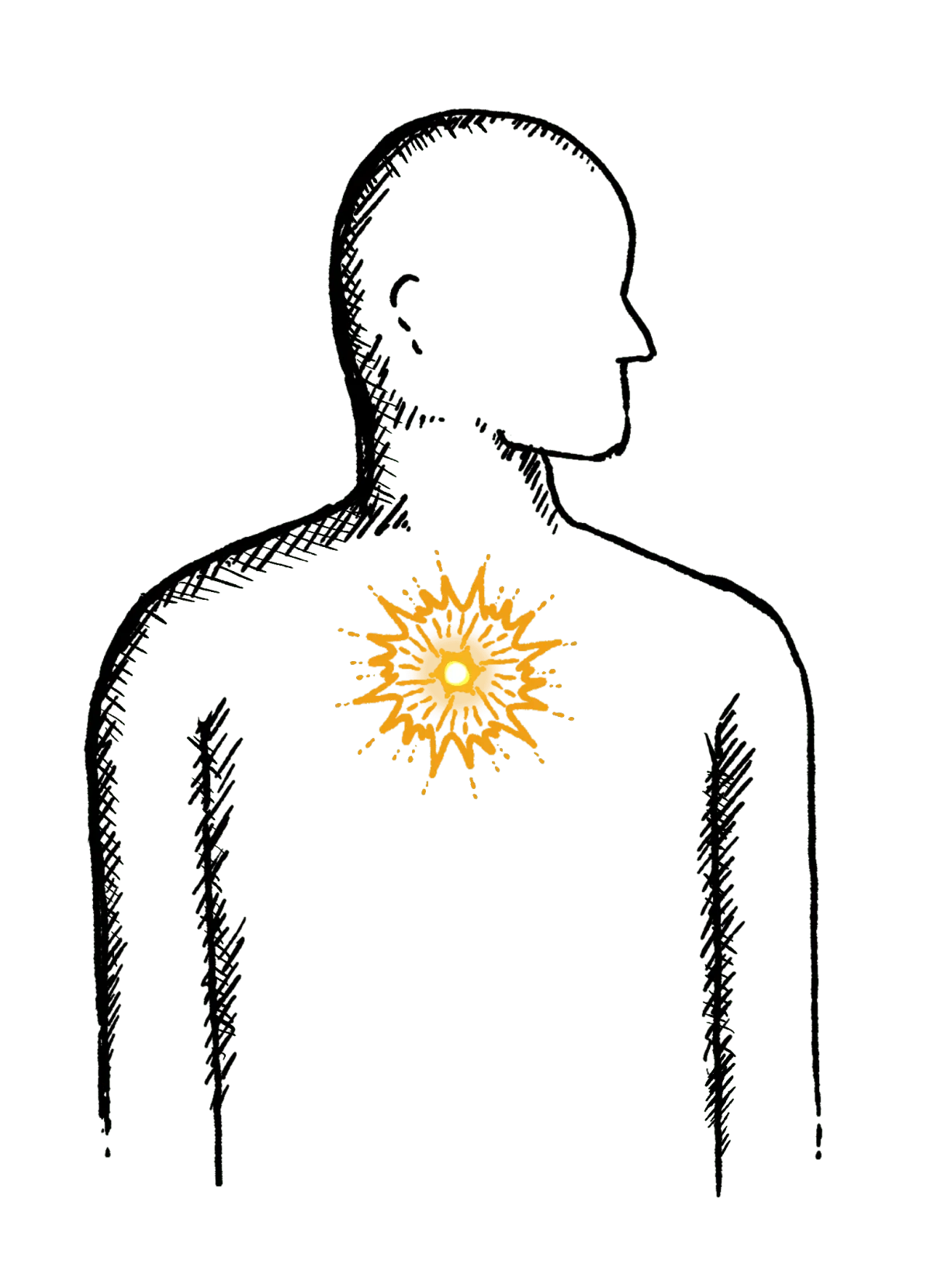
Burning mid-chest, worse when bending or lying down
Constipation
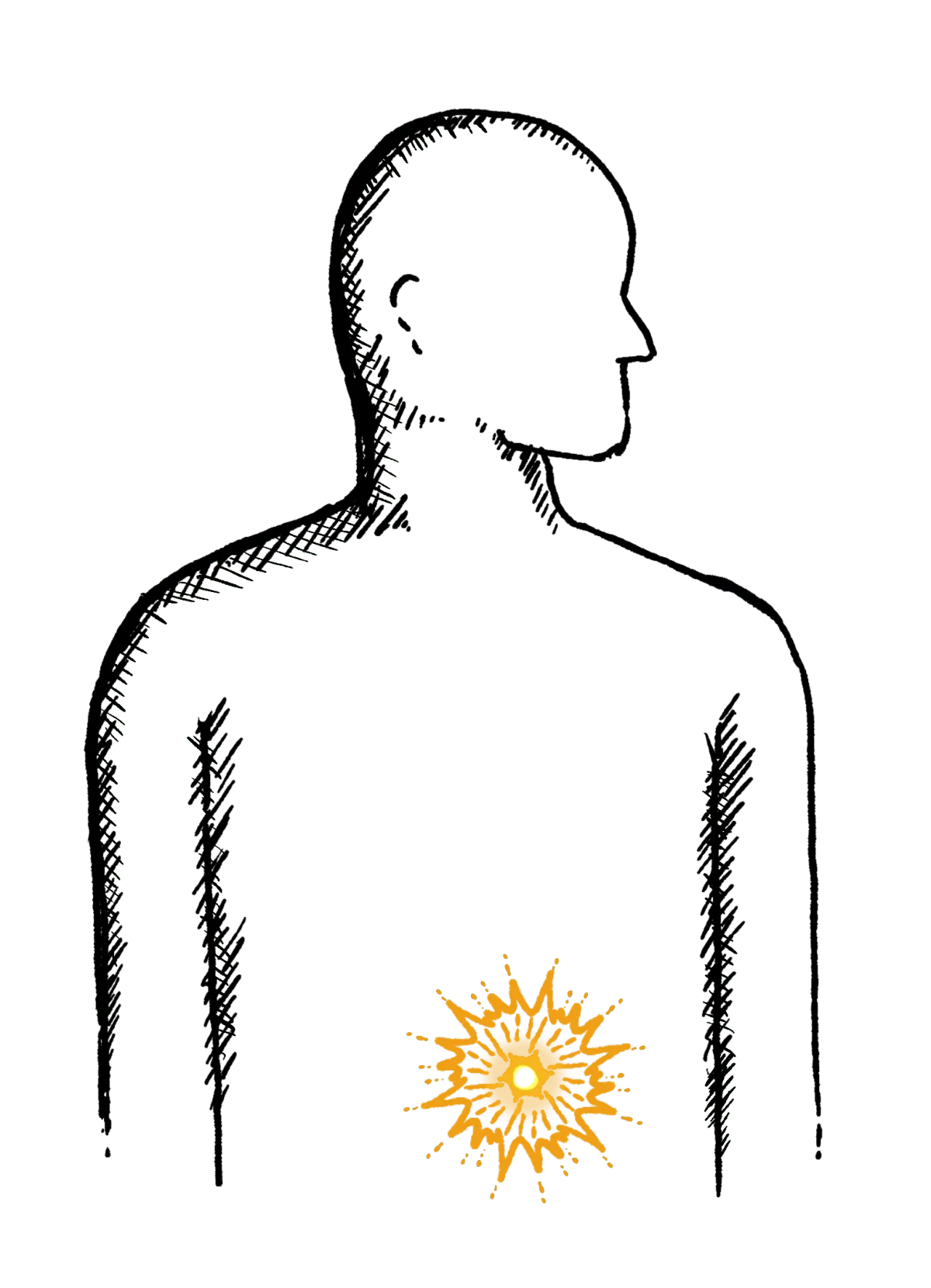
Difficulty going to the toilet, unusual stools, often with stomach ache or intestinal cramps, bloating, nausea or appetite loss
Heartburn

A burning pain in your chest, just behind your breastbone.
The pain is often worse after eating...
Regurgitation
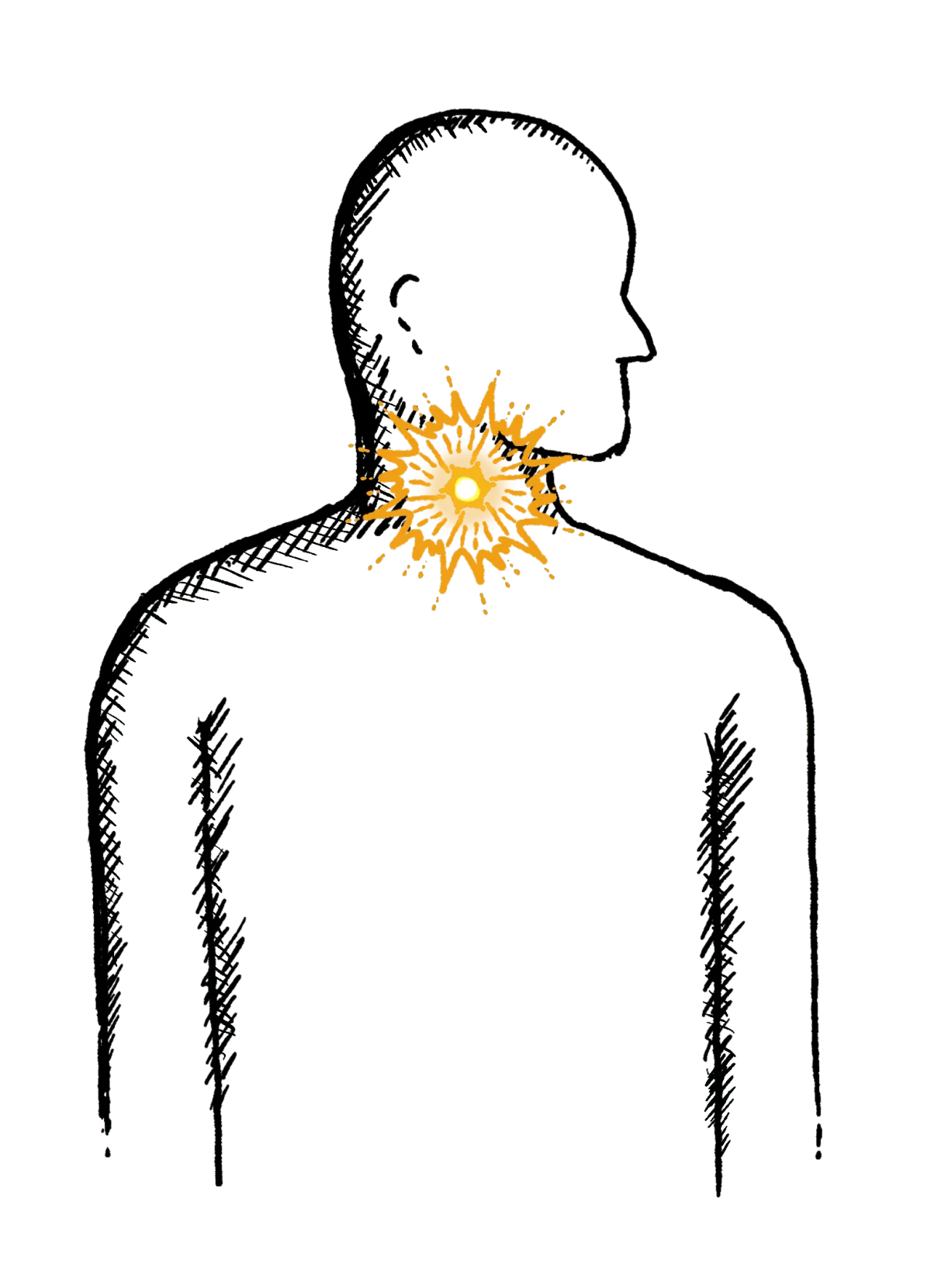
Bringing food or drink back up, difficulty swallowing, feeling that food or drink is stuck in your throat, horrible taste in your mouth
Swallowing Issues

Dysphagia - difficulty swallowing, feeling that food or drink is stuck in your throat, horrible taste in your mouth
Diarrhoea
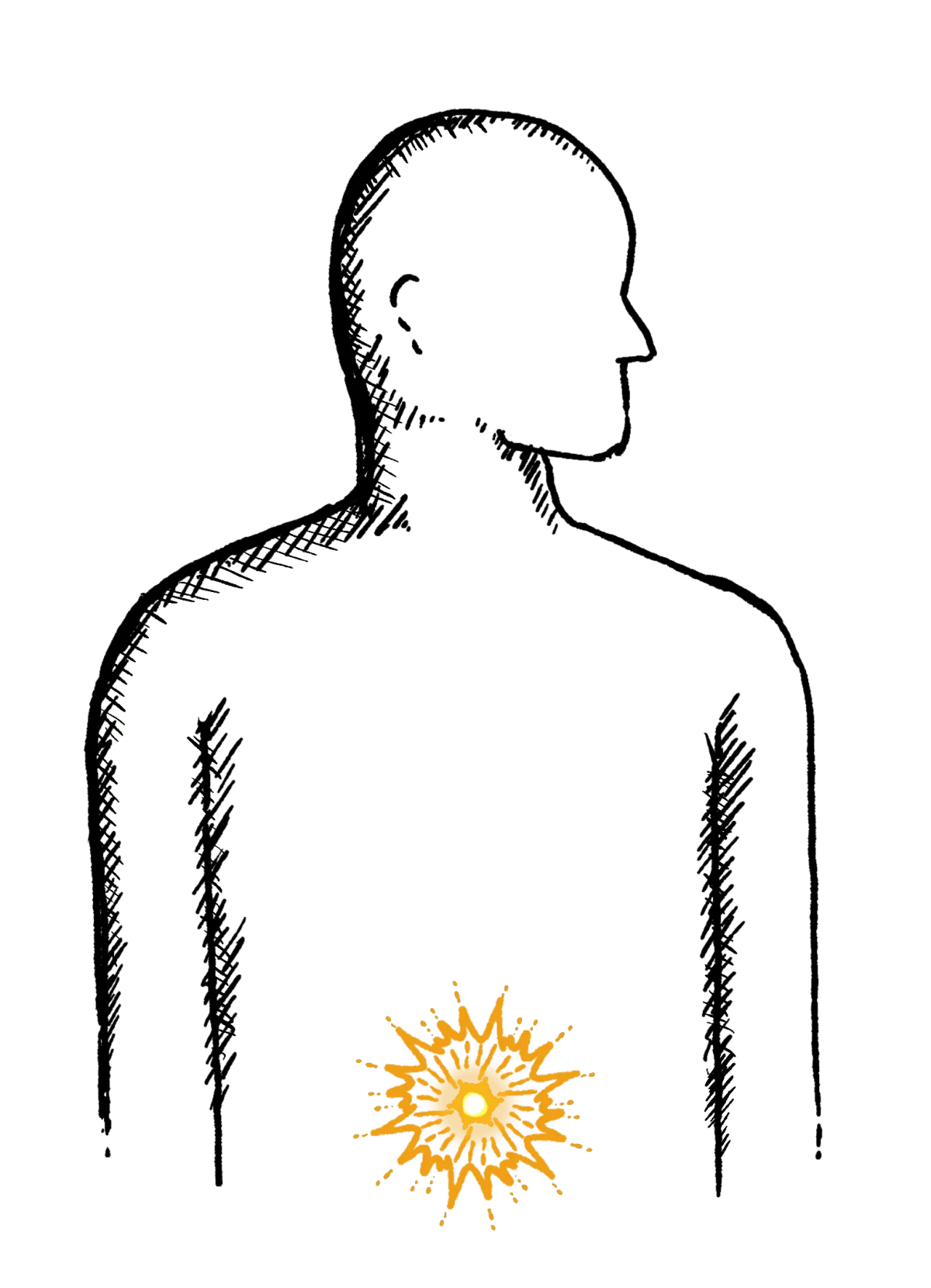
Loose or explosive stools, can’t get to a toilet in time
Abdominal Pain
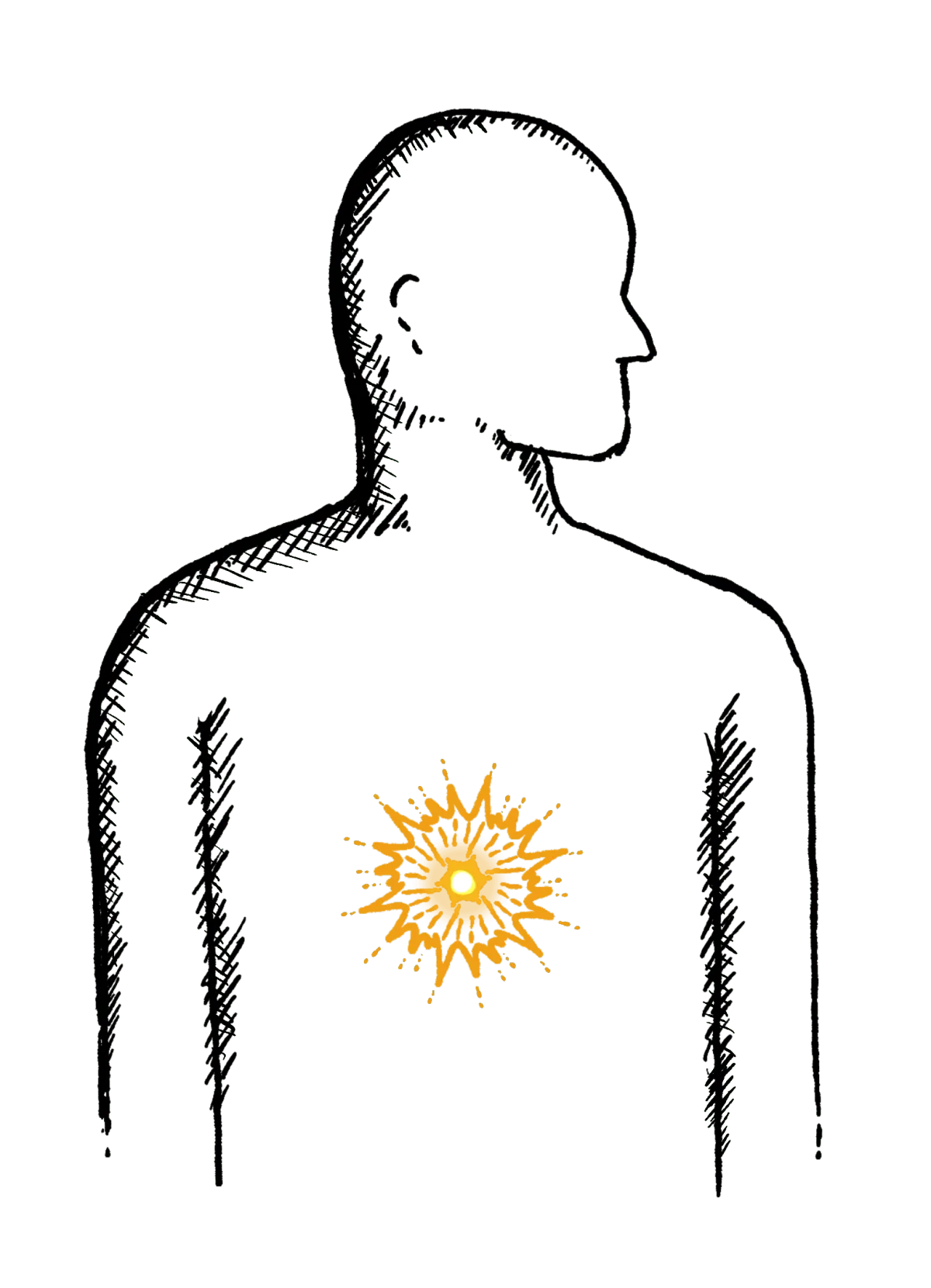
Cramps; sharp or dull pain, Bloating, Excessive belching, Nausea or vomiting
Faecal Incontinence

Stools leak unexpectedly, Can’t get to a toilet in time
IBS
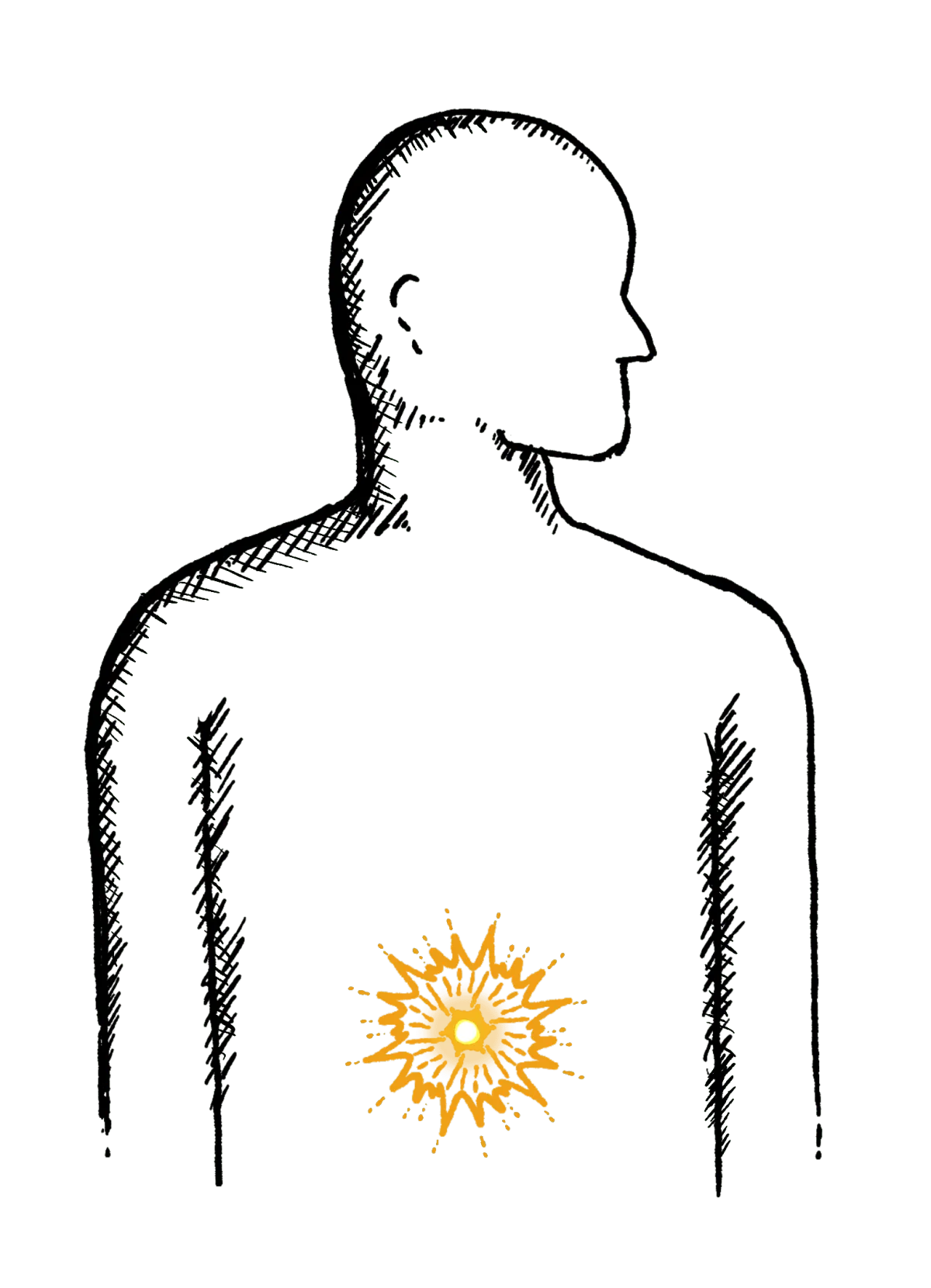
Abdominal pain or cramping, bloating, changes in bowel habits and urgency, gas

